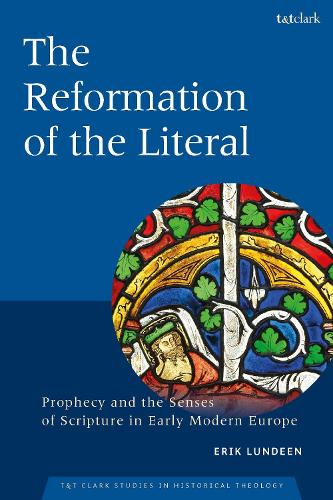
The Reformation of the Literal: Prophecy and the Senses of Scripture in Early Modern Europe
(Hardback)
Publishing Details
The Reformation of the Literal: Prophecy and the Senses of Scripture in Early Modern Europe
By (Author) Dr Erik Lundeen
Bloomsbury Publishing PLC
T.& T.Clark Ltd
23rd January 2025
United Kingdom
Classifications
Professional and Scholarly
Non Fiction
History of religion
Sacred texts, scriptures and revered writings
Calvinist, Reformed and Presbyterian Churches
Criticism and exegesis of sacred texts
Old Testaments
European history: Reformation
220.601
Physical Properties
Hardback
264
Width 164mm, Height 238mm, Spine 22mm
560g
Description
What does it mean to read the Bible literally Recent debates on Protestant Reformers have focused on whether they were stridently literal or allegorical interpreters. However, in this nuanced book, Ludeen argues that the question of what in fact constituted the Bibles literal sense was also a key question in early modern debates. There is no clean binary of literal versus allegorical; instead, reformers subtly produced a variety of competing literalisms. There was not one literal sense in the Reformation, but many. To make this case, Lundeen comparatively analyzes Reformation-era commentaries on the prophet Isaiah. He further highlights the little-known but influential works of the Basel reformer Johannes Oecolampadius, who was the first Christian to publish commentaries on most of the biblical prophets in the sixteenth century. By placing Oecolampadius in conversation with a host of his better-known Christian and Jewish predecessors and contemporaries, this book reframes a central aspect of Reformation-era biblical exegesis, while also providing a constructive resource for those who seek to read the Bibles ancient prophets as Christian scripture today.
Author Bio
Erik Lundeen is Adult Discipleship Pastor at Village Church of Gurnee, USA. He holds a PhD in the history of Christianity from Baylor University, USA, and an M.A. and M.Div. from Gordon-Conwell Theological Seminary, USA.
